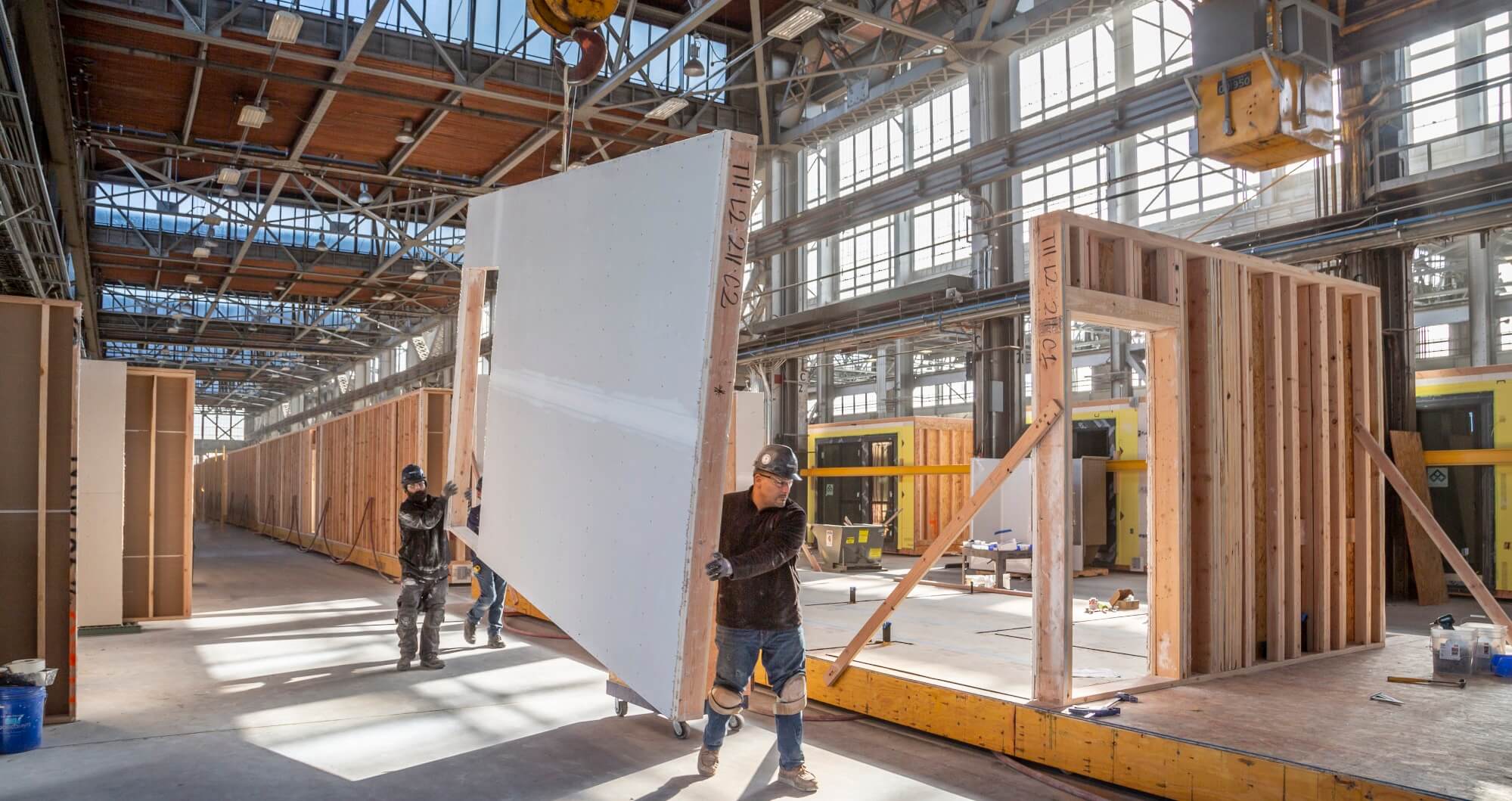There are almost as many names for this type of construction methodology as there are ways of doing it. With construction occurring across multiple sites and transport involving expensive building components there are some intricacies to the insurance programme that manufacturers need to be aware of.
FOR THE BUSINESS
Professional Indemnity
There is always a risk of errors in the professional services provided by any company, and an offsite building manufacturer is no different. Errors in the design, plans and specifications, or the interpretation and execution of these plans and specifications can prove very costly. This is potentially a greater risk than for traditional on site construction, because an error could be replicated multiple times in all the prefabricated units.
Assets
Obviously, the assets of the business need to be insured adequately. If the company owns its own premises these should be insured.
Business Interruption
More than a traditional builder, offsite manufacturers that rely on a factory operation are more likely to be affected by an event that shuts down production. They can’t as easily continue operation from another site without delays and costs being incurred. Business interruption insurance covers the additional costs of working and loss of profits that result from an insurable event. This could include a fire at the factory or natural disaster.
Liability Insurance
There is a comprehensive suite of liability insurance products to suit any business, and an offsite builder is no different. From statutory liability for health and safety prosecutions, to employee disputes and theft. Also products and general liability.
Key Person
Make sure the business can continue to operate if a key person within it is unable to work through illness or injury. Key person cover pays the company to recruit a replacement while they are off work.
FOR THE CONSTRUCTION
Advance Payment Bond
When building offsite principals are often required to pay large sums of money up front before their building has even left the manufacturer’s facility. In these cases they may require an advance payment bond, ensuring they are protected if the building they have paid for doesn’t get delivered.
Similarly, a performance bond guarantees that the manufacturer will perform their contract. If they fail to do so the principal can all on their bond to cover the cost of completing the build with another contractor.
Both of these can assist the principal when seeking finance, as performance of the contract is guaranteed by a third party surety (eg. an insurance company). This reassures the bank that their lending is not at risk should a default by the manufacturer arise.
Components In Transit
Have you ordered and paid for components that need to be shipped in from overseas? You need to be very clear who insures these while they are in transit. While the supplier might be responsible until they land (known as “Free on Board destination”), in reality it can be very difficult to recover your money or goods if there is loss on the high seas. Rather than relying on the seller making a claim on their policy in their home jurisdiction, you may be better to insure them locally, under a policy in your name. The cost of a delay also needs to be factored in, with delayed start up insurance cover available.
Stock On Hand
Do you have materials in storage that are unallocated to a particular project? These need to be insured under a material damage policy. If the materials were assigned to a particular project and you had contract works insurance they would be covered under that.
During Construction
Are you using a production line or is each building constructed in its own bay? There are two ways to insure buildings under construction, as manufactured products going through process under a material damage policy, or as buildings being constructed under a contract works policy. There are pros and cons to each, so it depends on your particular circumstances. If your buildings, once completed, are left sitting in the open air they may not be covered by one type, yet would be by the other. A contract works policy includes things like cover for the defects liability period, materials in transit and escalation of costs that a material damage policy wouldn’t.
Buildings In Transit
Now you need to get your building from the factory/yard to its final destination. If you are transporting building components (eg. modules of a building) then the transit extension within contract works cover may be all you need. However, if you are transporting whole buildings then a separate “marine cargo” policy would be necessary. It is critical that the lifting and lowering of the building at the start and end of its journey are clearly covered, either by the transit or the contract works cover, including while it is resting on temporary piles.
Completion on Site
Are you selling your buildings “ex factory” with the customer assuming responsibility for the transit and paying in full before you let it leave? If so, you will have no need to insure the works at the final site (or indeed for the journey there). However, if you have a full contract up to CCC, including the site preparations and service connection, then you will need to ensure your contract works insurance references both the factory and final site. And also that the full value of all the works is included.
From Practical Completion
Most contract works policies end on the earlier of the date on the policy, or practical completion or occupation by the principal. It is quite common for house insurance to only be available once a CCC has been issued (although some insurers will issue temporary cover with on a notice of a successful final inspection). That can leave a gap between the end of contract works cover (at practical completion) and the start of house cover (at CCC). The way to bridge this gap is with an extension for “Completion Cover” under the contract works policy. This gives breathing room to owners to arrange their own cover, but does not include “occupation risk” such as a cooking or heating fire, bathroom flood or damage done by the occupants.
10 Year Guarantee
Accredited builders can provide a 10 year independent guarantee of their construction to homeowners. This provides peace of mind that if there is a problem and the manufacturer is no longer around to remedy it, they can claim on their guarantee to have it resolved.
IN A NUTSHELL
If you are building offsite then you need to be fully across the risks posed by operating in such a way and along the entire supply chain. Engaging a specialist construction insurance broker, who understands the risks issues and underwriter concerns is a strongly recommended.




